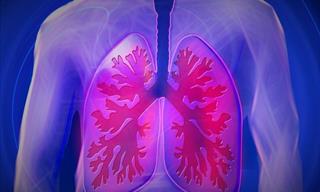We all want to lead a healthy life and remain fit. However, sometimes, despite our best efforts at the gym, you may still be struggling to shed weight. This might not be your fault, and maybe, slow metabolism is to blame. Metabolism is a complex chemical process through which your body burns energy for basic bodily functions such as your heartbeat, brain function, and breathing. All of this makes a big difference in the overall feeling of wellbeing. Did you know that your metabolism can account for 70% of the calories that you burn each day?
Those with a fast metabolism can easily maintain a healthy weight and burn fat. But those who have a sluggish metabolism have to work extra hard to maintain or lose weight. They also struggle to keep sustained energy throughout the day. Hence, it is crucial to keep your metabolism stable and consistently keep finding ways to boost it.
It is also equally important to keep an eye on the signs of slow metabolism in your body, as they may easily be ignored by us. Some lifestyle habits and underlying medical conditions can also cause our metabolism rate to decrease and it is vital to be aware of those indicators and work on them. Here are some classic signs of a slow metabolism you should take note of.
1. Sudden changes in weight
The biggest sign of slow metabolism is sudden changes in weight. To put it simply, if you are experiencing unexplained weight gain, then that may be a prominent sign of a sluggish metabolism. Gaining unexpected weight suddenly often goes unnoticed and we generally tend to blame it on an increased appetite.
However, if your weight gain is stubborn – especially around the middle - and simply won’t budge, despite following various workout routines and eating well, then it may be a sign of a slow metabolism. Many health experts describe this as “weight loss resistance” that your body seems to have developed from a slow metabolism. Basically, your body slows down your calorie conversion, you end up burning fewer calories from the same amount of food in a day, and your body also starts to store more fat.
"This is commonly associated with hypothyroidism, which slows down the basal metabolic rate because of a lack of thyroid hormones which are essential to the body's metabolic activities," explains Mashfika N. Alam, MBBS, a general practitioner. Like sudden weight gain, sudden weight loss may also point to a metabolic issue.
2. Hormonal imbalances
A slow metabolism can also cause your hormones to act unexpectedly. If you see that your skin is frequently dry and scaly, or you notice some hair thinning, these may be symptoms that your metabolism is slacking off. Because of slow metabolism, your body fails to utilize the micronutrients in the food you eat. Also, your cells aren’t as active as they are supposed to be resulting in improper blood supply.
As the skin fails to gain essential nutrients, it loses its luster. Furthermore, your body tries to conserve heat and you don't sweat as much. All of this results in you developing dry and cracked skin and brittle nails. Even oily skin followed by discoloration, or paleness may be an indication for you to get your metabolism on track.
The lack of sufficient micronutrients being absorbed by your body also affects your hair and its ability to grow and regenerate. A slowed metabolism can mean that your hair won’t have the supply it needs to stay strong, vibrant, and healthy. So, visible hair loss or a change in texture to dry and dull can be a sign specifying your potential metabolic deficiencies.
3. Blood sugar imbalance
Do you find yourself constantly craving sugar and carbs? If so, you may be experiencing insulin resistance, which results in slowing down your metabolism. "[Insulin resistance] is a common metabolic condition that means your cells are resistant to the action of insulin, a hormone produced by your pancreas that regulates how your cells metabolize energy," explains Caroline Cederquist, MD, practicing bariatric physician. Thus, if your body is resistant to insulin, it is likely to cause chronically slow metabolism.
If you are regularly craving sugar-laden products then understand that it is because your body isn't properly utilizing insulin. Since your cells can't absorb the glucose in your body, it leads to sugar and other carb cravings. The issue with this is that the more sugar and refined carbs you eat, the more your body can't process them. Moreover, once the sugar high subsides, you are left feeling tired and lethargic. You are also likely to have brain fog, and an overpowering need to take a nap during the day.
4. Constipation
Are you having trouble going to the bathroom? A slow metabolism can also impact other processes of the body, including slowing down the entire digestive process, which leads to constipation. The bowel transit time becomes slower, too, because of a slow metabolism. "It takes longer for food to travel through the GI tract and be properly digested, thus constipation occurs,” says Dr. Susan Besser, MD.
Generally, older people, who tend to be less active, have a slower metabolism and less muscle contraction strength along their digestive tract. That shouldn’t be the case for people who are young or middle-aged. When your thyroid fails to produce enough hormones (a condition known as hypothyroidism), it can have an adverse effect on your metabolism. In fact, metabolic disorders, like hypothyroidism, celiac disease, and cystic fibrosis, are well known to cause constipation.
5. Excessive stress
The health of our gut is primarily responsible for our mood and mental health. Metabolism largely affects our gut and a slow metabolic rate also slows down various bodily functions, including the brain’s functioning, which can result in depression or extreme stress.
Furthermore, stress amplifies the production of cortisol, a hormone that increases appetite and forces our brain to reach for comfort foods. It's meant to give you a quick boost of energy. However, when you are constantly stressed, the body keeps making cortisol and high levels of this hormone will make it tougher for your body to use insulin. This can eventually decrease our desire for exercise and slow down digestion. It can then put a break on your metabolism and promote weight gain.
Share this post with your health-conscious friends...
 Go to BabaMail
Go to BabaMail





























